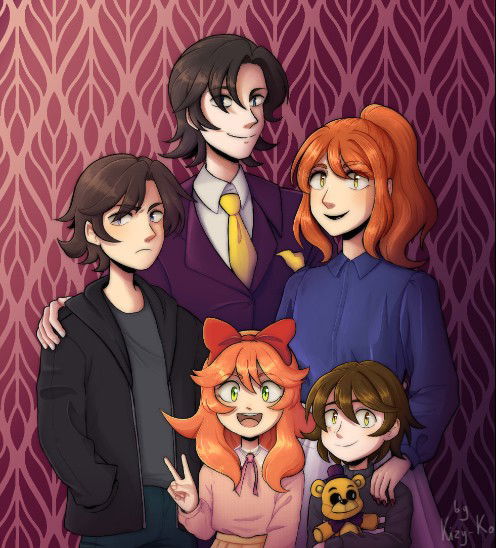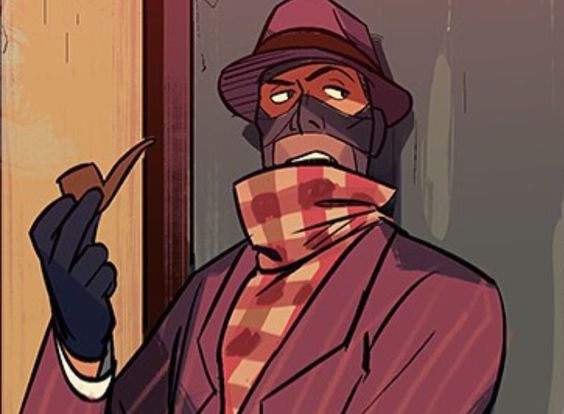Let's explore some of the most compelling male characters in anime who resonate strongly with the INFJ personality type. These characters, through their actions, motivations, and internal struggles, offer a fascinating glimpse into the INFJ archetype.
1. Itachi Uchiha (Naruto)
Itachi Uchiha is perhaps one of the most complex and beloved characters in the Naruto series, and he embodies many INFJ traits. From a young age, Itachi displayed exceptional intelligence and a deep sense of responsibility towards his clan and village. His actions, though often perceived as villainous by the outside world, were driven by a profound, albeit tragic, idealism and a desire to prevent greater conflict.
- Intuition and Foresight: Itachi possessed an uncanny ability to foresee future events and understand the intricate political landscape of the shinobi world. This aligns with the INFJ's intuitive nature, which focuses on future possibilities and underlying patterns.
- Sacrifice for the Greater Good: The ultimate sacrifice Itachi made – massacring his clan to prevent a coup and a devastating war – is a hallmark of INFJ thinking. He chose the path that, in his eyes, would cause the least overall suffering, even at the cost of his own reputation and life. This is a classic example of the INFJ's willingness to bear immense personal burden for their ideals.
- Deep Empathy and Hidden Pain: Beneath his cold exterior, Itachi harbored immense pain and love for his younger brother, Sasuke. His every action was, in some way, a complex plan to protect Sasuke. This deep, often unspoken, emotional core is characteristic of the INFJ's feeling nature.
- Principled and Driven: Itachi operated under a strict moral code, even when forced to compromise it. His commitment to his vision for peace, however flawed its execution, drove him throughout his life.
Itachi’s story is a powerful illustration of how an INFJ’s desire to protect and create a better world can lead them down paths of immense personal sacrifice and difficult choices. His internal conflict and the burden of his secrets make him a deeply compelling figure.
2. L Lawliet (Death Note)
L, the eccentric and brilliant detective from Death Note, presents a fascinating, albeit slightly atypical, INFJ. While his methods can seem detached and his social skills are certainly unconventional, his underlying motivations and his unique way of processing information align with INFJ characteristics.
- Intuitive Problem Solving: L’s deductive reasoning is legendary. He doesn't just follow clues; he intuits connections and possibilities that others miss. This aligns perfectly with the INFJ's reliance on intuition to understand complex situations. He often operates on hunches that prove to be remarkably accurate.
- Focus on Justice and Truth: Despite his quirky demeanor, L is driven by an unwavering pursuit of justice and truth. He dedicates his life to solving complex cases, often at great personal risk. This reflects the INFJ’s strong sense of morality and their desire to uphold principles.
- Introverted Nature: L is famously reclusive, preferring to work alone or with a very select few. His intense focus requires solitude, a common trait among introverts. His unique living arrangements and habits further emphasize his preference for his own controlled environment.
- Unconventional Methods: INFJs often think outside the box, and L is a prime example. His unorthodox strategies and his willingness to engage in psychological warfare with Kira showcase his ability to approach problems from unique angles, driven by his intuitive understanding of human behavior.
L’s character challenges the stereotype of the overtly emotional INFJ, demonstrating that their feeling nature can manifest as a deep-seated commitment to justice and a profound understanding of human psychology, even when expressed through logic and deduction.
3. Guts (Berserk)
While Guts from Berserk is often seen as a quintessential ISTP or even an ESTP due to his combat prowess and stoic demeanor, there are strong arguments for his INFJ leanings, particularly in his underlying motivations and his internal struggles. His journey is one of immense hardship, and the core of his being, beneath the rage and despair, hints at a deeper, more idealistic core.
- Driven by a Vision (albeit dark): Guts’s initial "quest" is one of revenge, a powerful, all-consuming purpose. However, as his story progresses, his desire shifts towards protecting those he cares about, like Casca, and finding a semblance of peace. This evolution from a singular, almost obsessive goal to a more protective, value-driven one is reminiscent of an INFJ's journey.
- Deep Emotional Scars and Empathy: Despite his hardened exterior, Guts carries profound emotional trauma. He is capable of deep love and fierce protectiveness, particularly towards Casca. His empathy, though often buried under layers of pain, is what drives him to continue fighting against overwhelming darkness. He feels the suffering of others, even if he struggles to express it.
- Seeking Meaning and Purpose: Guts is constantly searching for meaning in a world that has shown him nothing but cruelty. This existential quest for purpose is a common theme for INFJs who grapple with the gap between their ideals and the harsh realities they face.
- Internal Conflict: The constant battle within Guts between his rage and his lingering humanity, his desire for connection versus his fear of loss, speaks to the internal complexity often found in INFJ characters. He grapples with his own nature and the darkness that threatens to consume him.
Guts’s INFJ traits are perhaps more hidden, buried under layers of trauma and a life of constant struggle. Yet, his unwavering loyalty, his deep-seated need for connection, and his ultimate drive to protect what little good remains in his world point towards the profound, often hidden, idealism of the INFJ.
4. Light Yagami (Death Note)
This might be a controversial inclusion, but Light Yagami, the protagonist of Death Note, also displays significant INFJ characteristics, albeit twisted by his megalomania. His initial motivations and his self-perception are deeply rooted in INFJ ideals.
- Idealism and Vision: Light genuinely believes he is creating a better world – a world free from crime and injustice. His vision is grand and all-encompassing, a hallmark of the INFJ's future-oriented and idealistic nature. He sees himself as a savior.
- Sense of Purpose and Mission: He feels a profound calling to use the Death Note, believing it is his destiny to bring about this new world order. This strong sense of purpose drives his every action.
- Strategic and Insightful: Light is incredibly intelligent and strategic, capable of complex planning and anticipating his opponents' moves. While this can be seen as a general intelligence trait, his ability to understand human psychology and manipulate others stems from an intuitive grasp of motivations, which aligns with INFJ insight.
- Desire for Order and Control: The "Judging" aspect of INFJ can manifest as a desire for order and structure. Light's obsession with creating a perfectly ordered world, free from the chaos of crime, reflects this, albeit in a distorted way.
The tragedy of Light Yagami is how his INFJ idealism becomes corrupted by power and ego. He starts with a desire to do good, but his methods and his belief in his own infallibility lead him down a dark path. This serves as a cautionary tale about the potential pitfalls of unchecked idealism, a struggle that even the most well-intentioned INFJs might face.
5. Lelouch Lamperouge (Code Geass)
Lelouch vi Britannia, the charismatic and strategic leader from Code Geass, is another character who strongly embodies the INFJ archetype, particularly in his motivations and his complex approach to achieving his goals.
- Idealistic Goal: Lelouch's ultimate aim is to create a world where his sister, Nunnally, can live in peace and happiness. This deeply personal and idealistic vision fuels his entire rebellion against the Britannian Empire.
- Intuitive Understanding of People: He possesses a remarkable ability to understand people's desires, fears, and motivations, which he expertly manipulates to achieve his objectives. This intuitive grasp of human nature is a key INFJ trait.
- Strategic Planning and Vision: Lelouch is a master strategist, meticulously planning his moves and anticipating the consequences. His long-term vision for a new world order, even if achieved through morally ambiguous means, showcases the INFJ's forward-thinking and goal-oriented nature.
- Introverted Core: Despite his public persona as Zero, Lelouch is fundamentally an introvert who craves a peaceful, ordinary life. His actions are driven by a sense of duty and a desire to protect, but his true self longs for solitude and a simpler existence.
- Moral Ambiguity and Sacrifice: Lelouch constantly grapples with the moral implications of his actions. He is willing to make immense sacrifices, both personal and ethical, to achieve his ultimate goal, reflecting the INFJ's capacity to bear heavy burdens for their deeply held beliefs.
Lelouch’s journey is a testament to the power of an INFJ’s conviction and their willingness to take on the weight of the world for their ideals. His complex character arc, filled with difficult choices and profound sacrifices, makes him a captivating example of the INFJ male archetype.



